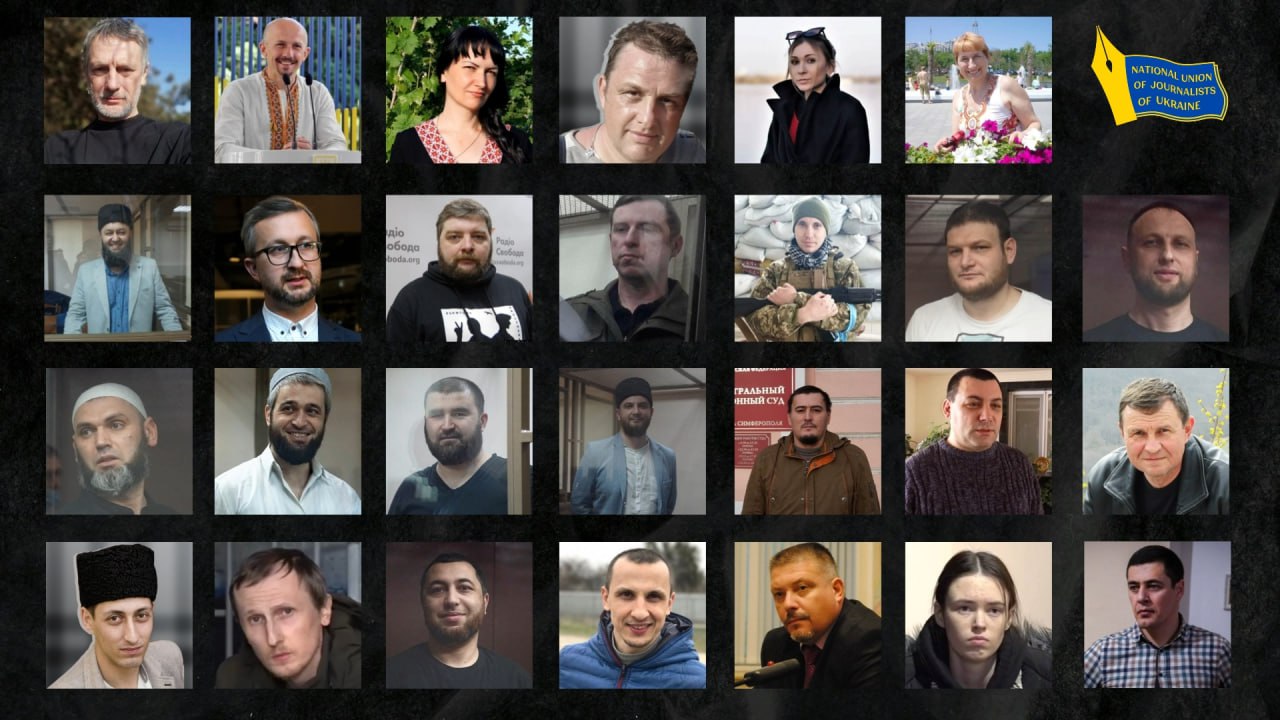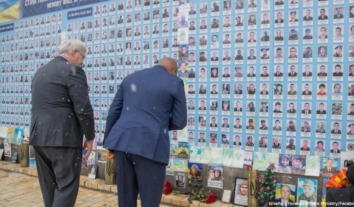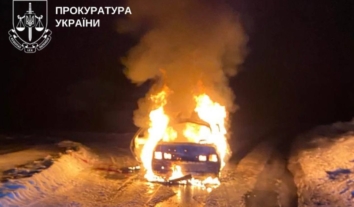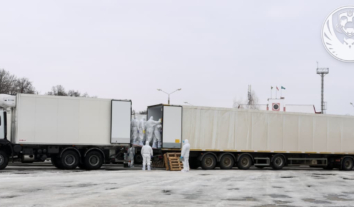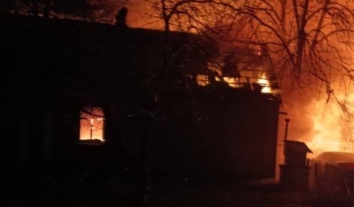The illegitimate “Supreme Court of the Republic of Crimea” has sentenced a 30-year-old Hurzuf resident to 13 years in prison for alleged “high treason.”
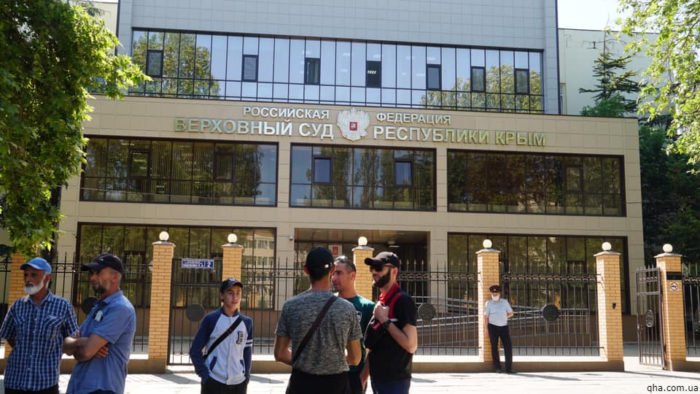 The illegitimate “Supreme Court of the Republic of Crimea”
The illegitimate “Supreme Court of the Republic of Crimea”
“He was found guilty under Art. 275 of the Criminal Code of the Russian Federation (high treason, i.e., espionage committed by a citizen of the Russian Federation – the transmission, collection to transmit to the enemy of information that could be used against the Armed Forces of the Russian Federation, committed under conditions of other actions involving the use of weapons and military equipment with the participation of the Russian Federation),” Crimea. Realities cite the controlled by Moscow illegitimate “prosecutor’s office” in temporarily occupied Sevastopol.
In addition to imprisonment, the “court” fined the man RUR 200,000 and imposed an additional penalty of one year and six months of restricted freedom.
The illegitimate “prosecutor’s office” report provided no details of the case.
The man’s name and surname are not specified. There are currently no public comments from the convicted person or his defense.
Earlier, Tetyana Pechonchyk, head of the ZMINA Human Rights Center, reported during the III International Forum of the Expert Network of the International “Crimean Platform” that Russian authorities in Crimea have increased the number of accusations made under the articles on high treason (Article 275 of the Russian Federation Criminal Code) and cooperation with a foreign state (Article 275.1 of the Russian Federation Criminal Code).
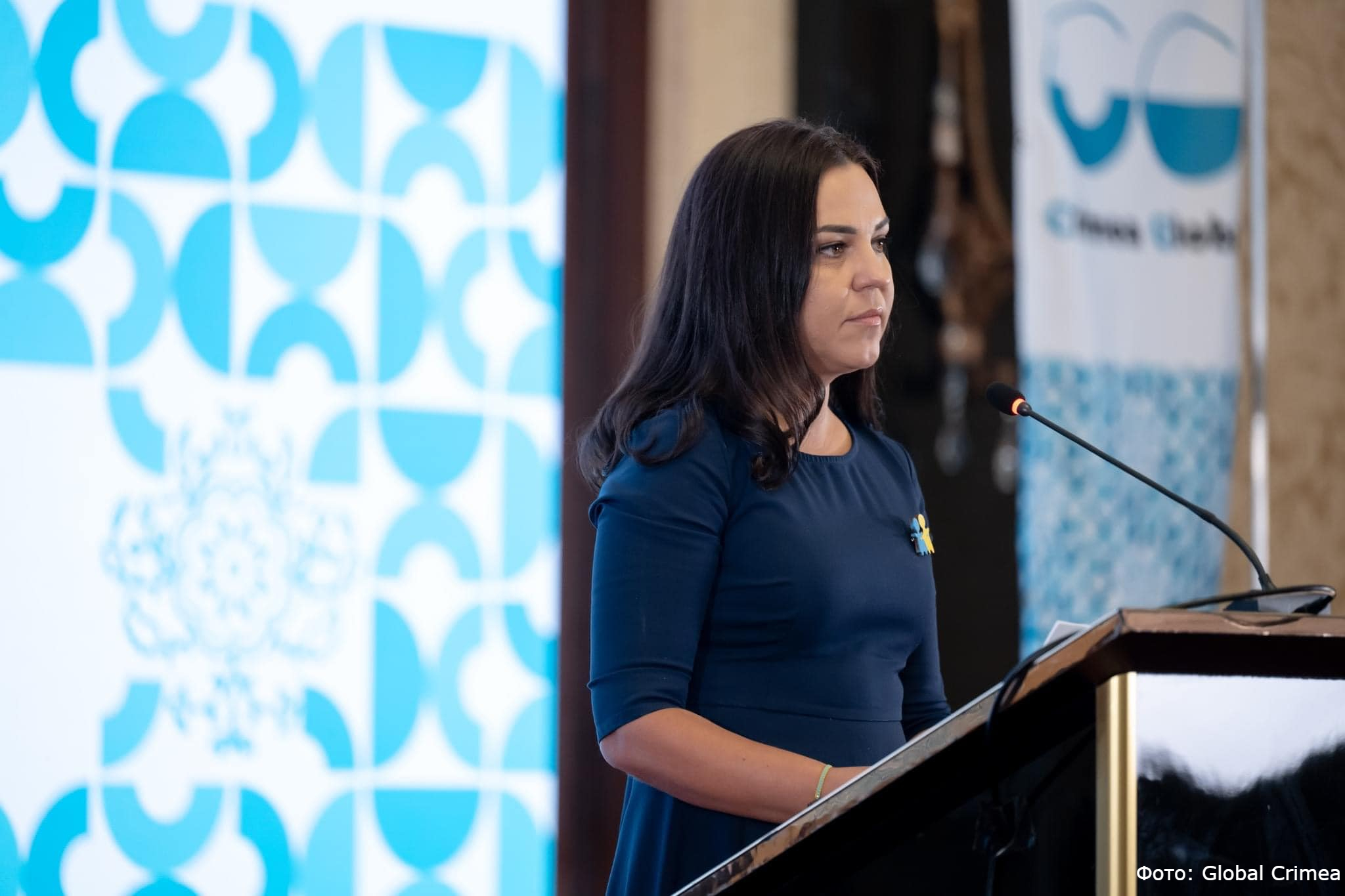 Tetiana Pechonchyk
Tetiana Pechonchyk
The Crimean Human Rights Group has recorded 40 Ukrainian citizens whom the occupation authorities have imprisoned on charges of espionage, sabotage, and terrorism. Crimean human rights defenders refer to these cases as the“cases of Ukrainian saboteurs”.
In a comment to “Suspilne Krym,” Iryna Siedova, an analyst at the Crimean Human Rights Group, said that Russia is sentencing different people in these criminal cases – journalists, activists, human rights defenders, and ordinary civilians.
“For example., there is Iryna Danylovych, who faced planted explosives simply for engaging in journalism. There are also people among them whom authorities accuse of espionage and then force to confess under torture, to incriminate themselves. And some agree because the Russians cunningly promise that if they admit that they are not civilians, but belong to the Armed Forces of Ukraine, the Security Service of Ukraine, the Defense Intelligence of the Ministry of Defense of Ukraine, etc., then they will be exchanged faster. Of course, it’s all a lie. They do this to create statistics and show in the information field that Russia is successfully fighting Ukrainian saboteurs,” Siedova explained.
According to her, Russian occupying authorities fabricate these cases and make them public because they are part of the information war.
They intimidate the population of Crimea this way, so that people don't resist. Because if you support Ukraine, you'll get 18 years, figuratively speaking. This is the message they're spreading in the information field. And another message they're spreading, which allows them to legitimize all these measures of genocide against Ukrainians, is that 'all Ukrainians are terrorists',” Iryna Siedova said.
Siedova provided an example of 35-year-old Ihor Korchinskyy, whom the Southern District Military Court in Russia sentenced to 18 years in prison under the terrorism article on August 20, 2024.
“These fabricated cases of alleged terrorism help them in the information field. To spread these messages, narratives that all Ukrainians are terrorists, you see how many we’ve found, convicted, what sentences, how many more are hiding, so let’s fight them, let’s destroy and persecute them in the occupied Crimea,” the human rights activist concluded.
Read also: “The father did not find out where Raim was before his death”: why Russia transfers Crimean political prisoners as far as possible from their relatives
The Crimean Human Rights Group has documented the following Ukrainian citizens detained in Crimea in this category of cases, including:
- Volodymyr Dudka;
- Oleksii Bessarabov;
- Dmytro Shtyblikov;
- Hennady Lеmeshko;
- Leonid Parkhomenko;
- Konstantin Davydenko;
- Dmytro Dolhopolov;
- Hnna Sukhonosova;
- Yunus Masharipov;
- Ivan Yatskin;
- Halyna Dovhopola;
- Vladyslav Yesipenko;
- Evhenyy Petrushyn;
- Stanislav Stetsenko (Khudoley);
- Kyrylo Barannyk;
- Serhey Voynarovskyy;
- Viktor Podvalny;
- Vitaly Talavyra;
- Denis Petranov;
- Ihor Kupych;
- Oleksander Litvinenko;
- Serhii Krivoshein;
- Konstantin Yevmenenko;
- Ihor Zoryn;
- Mikhaylo Chupil;
- Mykola Onuk;
- Volodymyr Ananiev.
The list of Crimean human rights defenders includes at least 11 people whom Russian forces abducted in Zaporizhzhia or Kherson regions after February 24, 2022:
- Artem Baranov;
- Oleksandr Novatskyy;
- Vitalyy Rastorguyev;
- Volodymyr Kryvtsun;
- Oleksandr Zarivnyy;
- Hennadyy Lasinskyy;
- Serhii Tsygypa;
- Mykola Petrovskyy;
- Serhii Kotov;
- Yaroslav Zhuk;
- Ihor Protokovylo.
Earlier, during an expert discussion organised by the Centre for Democracy and Rule of Law, Victoria Nesterenko, the project manager of the ZMINA Human Rights Center, emphasized the need for a new mechanism to return Crimean political prisoners to Ukraine.
In April 2024, the National Union of Journalists of Ukraine reported that at least 28 Ukrainian media workers and citizen journalists, including those in the temporarily occupied Crimea, are being held in captivity “as a result of illegal detentions, capture, false accusations, and sham “trials” by Russian occupiers in Ukraine”. The Union also published a list of imprisoned journalists.
Earlier, the Committee to Protect Journalists (CPJ) called on the temporary authorities in the Russian-occupied Ukrainian peninsula of Crimea to stop intimidating journalist Lutfiye Zudiyeva and let members of the press work freely.
The human rights community in Ukraine also believes that the de-occupation of Crimea is necessary to stop the systematic violations of human rights committed by the Russian Federation on the peninsula. They are urging other countries to support Ukraine with timely and sufficient weapons and military equipment supplies towards this end.
Earlier, the human rights NGO Crimea SOS emphasised that ignoring the war crimes of the Russian occupiers has led to a deterioration of the human rights situation in the occupied Crimea. The lack of response from the international community to the occupation of Crimea and the further crimes of the occupiers made it easier for Russia to turn the peninsula into a springboard for the invasion of mainland Ukraine in 2022.
In July 2023, Wayne Jordash, the managing partner of Global Rights Compliance LLP, said that the International Criminal Court is not doing enough to investigate international crimes against civilians in the temporarily occupied Crimea.
 The illegitimate “Supreme Court of the Republic of Crimea”
The illegitimate “Supreme Court of the Republic of Crimea” Tetiana Pechonchyk
Tetiana Pechonchyk
